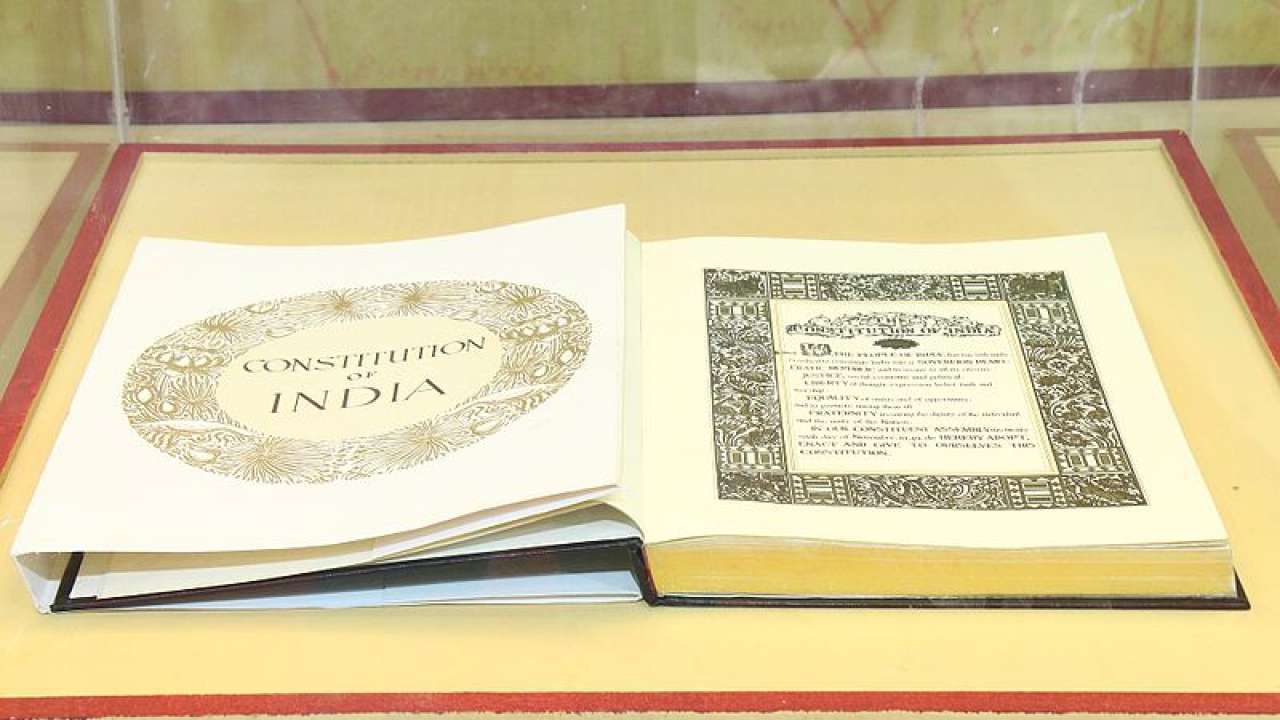With the horrendous memories of the attacks of 26/11, the date also shares a positive anecdote. 26th November is celebrated as the Constitution Day or “Samvidhan Diwas” every year. The day marks the successful framing of Indian Constitution, on 26th November 1949 which came into effect on 26th January 1950. Constitution day highlights the law of the land of the Indian republic and promotes to instill, imbibe and preserve constitutional values among citizens.
History
The Union Ministry of Social Justice, through a gazette notification, notified the decision to the Center to observe and celebrate November 26 as Constitution Day throughout the country. Dr. Bhimrao Ambedkar, the chairman of the drafting committee became the first law minister of the independent India under the Congress-ruled center. The mere idea of the Indian Constitution draft took the constituent assembly a total of 165 days to collectively brainstorm their ideas. The Constituent Assembly took almost three years to complete the monumental task of drafting the constitution. American Historian Granville Steward Austin referred to the Indian handwritten constitution as the ‘first and foremost social document’.
Salient Features of the Indian Constitution
Indian Constitution though borrowed and inspired from a varied list of countries, does possess and pose its very own salient features which makes it distinct and elaborate at the same time. While a lateral trajectory is followed, incorporating every spectrum of the society, the constitution poses itself as a linear document drafted to further the nation’s interests above all else.
The Indian Constitution is the lengthiest piece of regulations in the world. Incorporating 397 articles, divided into 22 parts and 9 schedules, the Indian Constitution is regarded as the ‘Elephant Size’ Constitution across the globe. The length of the constitution is just a silver lining as to how multifaceted society, India as a nation is. Cherishing constitutional powers to both Union and States whilst creating a Quasi-Federal bridge between the two, Indian Constitution presents itself as one of the most rigid and flexible characters at the same time.
The Universal Adult Suffrage is another feather in the cap. With giving every person above the age of 18, the right to vote and collectively elect their representatives without giving any special rights to marginalized communities and communalities, the constitution provides a levelled field in terms of representation.
Independence of Judiciary and the widened scope of Judicial Review is what upholds the integrity of the Constitution and thereby, the democracy as a whole. A judiciary which is free from any kind of interference from other organs of the government, makes it easier for the judges to protect the rights of the citizens without any hesitation, fear and favor. It further also has a right to nullify any legislation passed by the legislature or any act done by executive if it goes against the letter of the constitution.
Secularism is one of the most defining and path-breaking characters of the constitution. The sheer willingness to pronounce India as a secular state, glorifies the plurality of the nation and umbrellas it into one single law of the land.
What Happened during Constitution Day?
The proceedings of this year have been relatively different from the regular processions. The Hon’ble Prime Minister Narendra Modi, in his speech at the parliament hinted towards the political parties adapting a dynastical approach, as he believes that such an approach which concentrates the power in one hand in entirety, harms the democratic construct of the parliamentary system and therefore of the country as a whole. The Prime Minister is also supposed to inaugurate the two-day Constitution Day celebrations organized by the Supreme Court.
While the aforementioned oral dictum was hinted exceedingly towards Congress, a delegation of 13 opposition parties had collectively skipped the Constitution Day celebrations in the parliament as the leaders of the opposition parties were dejected as their demands regarding the fore-coming discussion on bills hasn’t been met. The Prime Minister has duly remarked that the celebration is organized by an institution and not by the government and therefore must not be boycotted for personal spiteful interests.
The Prime Minister further reiterated the words of the first President of Independent India, Dr. Rajendra Prasad, hinting that a beautiful structured constitution as that of India does not serve its purpose unless it is not run by selfless, fearless servants of the country.

